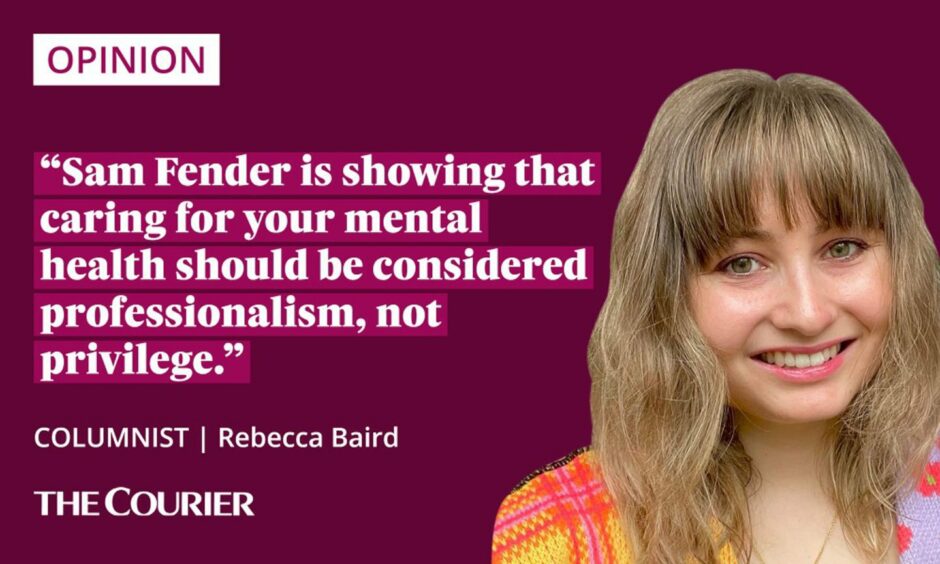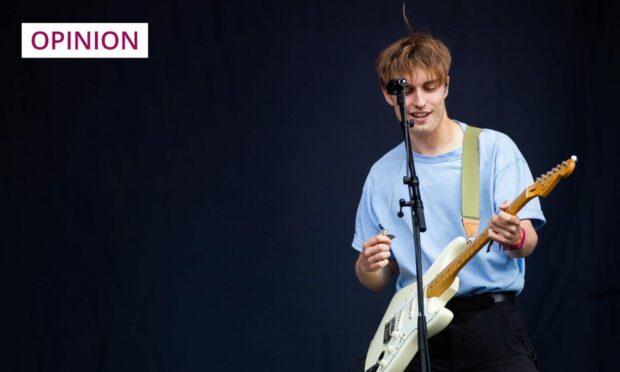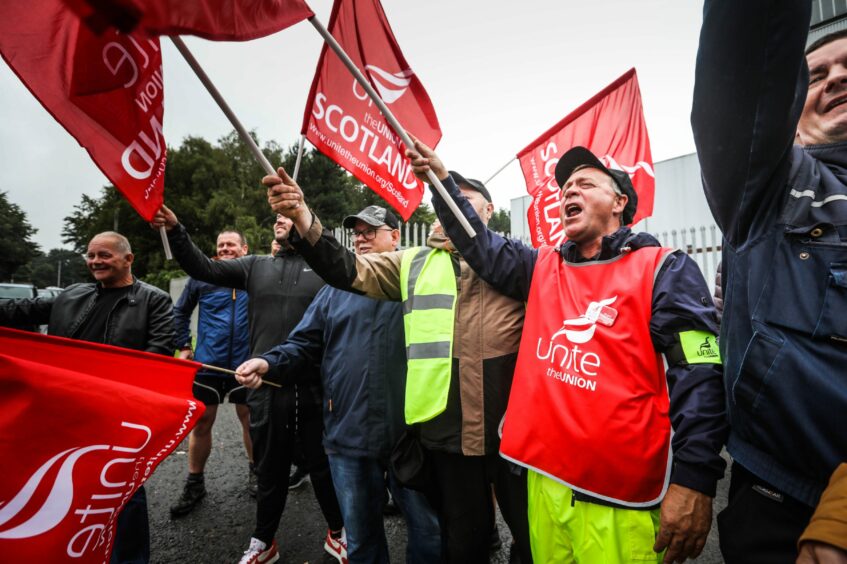Fair play to Sam Fender.
The Seventeen Going Under singer announced last night that his Dundee gig won’t be going ahead.
In a candid social media post announcing a string of axed shows, Fender admitted he was struggling with his mental health and that “me and the boys are burnt out”.
No doubt many fans around the city are going to be disappointed.
I know all too well how gutting it can be to lose the chance to see your favourite musicians – especially after securing tickets, which is a performance in itself these days.
But I also know how hard it can be to admit you aren’t coping.

And for someone like Sam Fender, whose livelihood is dependent on the continued adoration of people who have given their hearts (and hard-earned cash) to his music, that admission holds a huge amount of weight.
Not only is it a heartening example of a young man taking his mental health seriously – something that can only ever be admired at a time where men’s mental health is chronically in crisis – but it also shows how far we’ve come as a society in awareness and empathy.
People being nice on Twitter? Unheard of
When I clicked the comments section on Fender’s post, I was braced for blood-baying backlash from the “snowflake” brigade.
I expected hurled accusations of abused privilege and typo-littered minimisations of what can only be treated as a very real human struggle. I expected to be sad.
And instead, for maybe the first time in human history, reading Twitter comments left me hopeful.
Folk were – shock, horror – being kind online. Fans were leaving messages of support, and sharing their own stories.
I even spotted some people reaching out to strangers to offer a listening ear as they bonded over similar struggles to Sam’s.
It was, dare I say, a bit beautiful.
I never understand why managers etc book artists back to back and burn them out, where they end up having to cancel and pull out of dates! He's doing the right thing taking a break but maybe they should stop booking back to back festivals in the middle of concert tours!
— Shannon (@Shannonstar19) September 12, 2022
Even the frustrated faction were, for once, pointing their anger in the right direction.
Instead of taking their disappointment out on Sam, angry fans were calling for better management and more realistic touring schedules across to avoid talent burnout.
And though it may seem laughable to question the working conditions of a “dream job” like rock star, only good things can come from shining the limelight on the grubby, “industrial” side of the music industry.
Pull yourself up by the bootstraps, end up on the floor
Five years ago, the idea that someone privileged enough to make money as an artist would consider taking time off for their mental health was unthinkable.
The entire Western world was knee deep in the capitalist weeds. Success was synonymous with “grind” and “hustle”.
Fulfilment came only from Dreaming Big and Making It Happen.
There was no room for small dreams, like making a living while also wanting to live.
But now, post-pandemic, health – both mental and physical – is high up on humanity’s value list, and workers are tossing out the idea that any job is worth killing yourself over.
Not bin collector. Not classroom assistant. And not pop star.
Because the truth is, no one likes letting down the people that count on them.
The myth of the abused sick line is just that – a myth.
And it reinforces the lingering stigma left by “pull yourself up by your bootstraps” culture.
Many of us sacrifice our individual wellbeing because we know that to take time off from work would leave our colleagues or customers in the lurch.
Many of us don’t have a choice.
We exist in worlds of Understaffed and Overworked, and choosing ourselves often automatically means letting down others – or losing your job.
But here’s the thing: It’s literally impossible to pull yourself up by your bootstraps. Gravity won’t let you.
If you try, you trip yourself up, and end up in a heap on the floor.
So something has to change.
By publicly taking responsibility for his own wellbeing – despite the undoubtedly hefty knowledge that he’s letting down thousands of people – Sam Fender is showing that caring for your mental health should be considered professionalism, not privilege.
And if Twitter can be nice about that, maybe things really are changing for the better.













Conversation